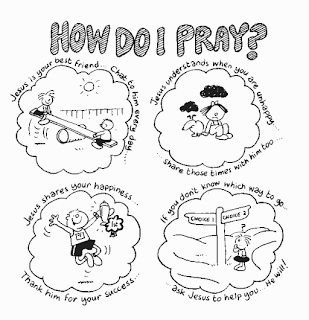I am truly encouraged
by Paul’s desire, passion and obligation to preach the gospel. Paul desired to
preach the gospel because it is the power of God that brings salvation and
God’s righteousness is revealed. It reinforced what Christ has done for me; out
of gratitude I share the gospel. In this regards, I am propelled, empowered to
share with the least difficulties and even with joy and expectation. As it was God’s given opportunity, a Young Adult leader asked if I could mentor someone from the air
force. It was a challenge as the mentee is currently on a two-year detachment
in USA, and the only chat means with immediate response was Whatsapp. From the first chat, I sensed
the air of loneliness, discouragement, and backsliding; a
silent cry for help. The Lord guided me wonderfully, enabling me to
respond gently and work through the concerns together. Coming previously from a
similar background, I understood his frustrations and was prompted to make an
encouragement card with his name cradled by two hands and a bible verse, “The
Lord is my helper; I will not be afraid. What can man do to me?” – Hebrews 13:6
(NIV). Though having a hard time in the Detachment he sent me this in the chat, “Haven’t been doing well for the past two
week. But I saw a silver lining after praying to God. Hope it continues to
stay... =)”. What a change from our first chat together! Praise the
Lord!
My heart overflows with love and gratitude
when I contemplate the marvelous grace of our loving
heavenly Father. The book of Romans deeply
impressed me with the
truth that my good standing
before God is not a reason for self-righteous
boasting; rather, it is a reason
for raising my voice in praise
to God; for it is the result of His wonderful grace, and not our own goodness. I learned about sin,
righteousness and sanctification and glorification through the book of Romans. God allowed
me to open my heart by his word. Romans 8:35, “Who shall separate
us from the love of Christ?” taught me
the love of God and no one can separate
me from his love because Jesus died for us. While
there exist a sinful nature in me but I
thank God for an opportunity to return
to Him. I want to know more about Jesus
and grow more like him. No matter the sufferings, I want
obey my God and his word because
God has great plans for me,
better than I can ever plan for.
Romans 12:9-13 did wonders in amplifying the love without action is not love. As believers, we are given the power to love and worship God with pure hearts and without limits. As I reflect on the interactions in various groups of the class, I daresay I am truly blessed by the team spirit and the willingness to share though our lecturer Rev Casey did comment that we were very subdued at lunches as compared to his previous classes. We probably had a different dimension to eating but we were sure LOUD during the presentations! For a start, our group had a ‘together’ focus; to complete the module together with the best of our abilities. It developed cohesion within the group bringing about an un-coerced element of love, understanding, tolerance and acceptance. Though we started slow, the group continued gelling together with a wonderful team spirit in God’s timing. Practical Christianity comes down to very basic principles of living. I am reminded to be willing to place Jesus Christ as Lord over my life, and I must endeavor to be eager to share my life with the needs, hurts, and joys of others
Being a practical person, I found the reflection sessions useful and
encouraging to me as the study on Romans did get profound at some occasions. I am thankful to
everyone for being honest in their sharing. I didn’t expect our lecturer Rev
Casey to share a testimony which probably was his and Sis Davina’s most painful
yet defining moment in their lives. It left a lasting impression and reminded
me that God is never far even in my darkest moment. It encouraged me that my every testimony, big or
small, on how the goodness of God has changed my life can be used mightily
according to his purposes to those who are still in darkness, unbelief, and
rebellion. It reminds me that they are not for my safekeeping but an extension
to the whole community. There is an old riddle that asks, "If a tree falls
in the forest, and no one is around to hear it, does it make a sound?"
Personal experience logically establishes that the tree made a sound when it
fell, whether anyone desires to hear it or not. The choice is ours to share. I am
truly honored to be a part of God’s Kingdom and His evangelistic team, and will
forever treasure these moments in my heart.
Blessings....



















